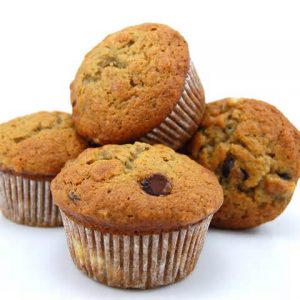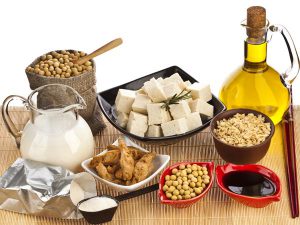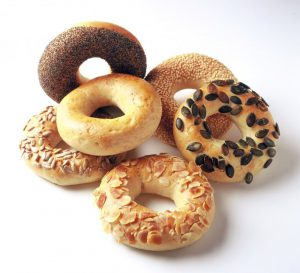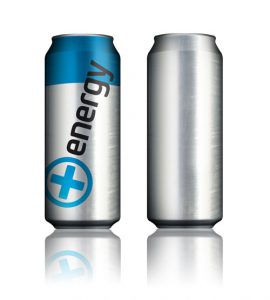We all knows that Healthy Foods vs Unhealthy Foods , a big topic to discuss in the whole world right ? But We know that everyone want to be fit and healthy. And became a fit and healthy we have to take care about our foods which we are taking on regular basis. You can turn on just about any news program and hear about the declining health and increasing waistlines of all countries.
Now a days mostly peoples are aware about health and they are also taking care about healthy eating and that is why overall sales of natural and organic foods increased 7 percent per year. Just when you think it goes to your favorite store food in good health and seize all “healthy” was sure to turn off the shelves, we hit with some “health” foods are deceptive remarkable, and we they think our body needs to eat better, we are seriously in error.
1 Muffins
Next to a Danish or a donut, muffin looks like a reasonable option. He got fruit, after all, and maybe even a little sound. A muffin is a light, nutritious snack – or so we have heard since the 1980s. When you actually break down a muffin, though — sugar, flour, butter/margarine, etc. you realize that if it came in a slightly different shape with some frosting, it wouldn’t be called a muffin … it would be called “cake.”.
And then there’s the size. The size of a small plum cake that your grandmother cooked a thing. Most bakeries, grocery stores and coffee shops are today a wide concoctions. These muffins 340,630 calories and 27 grams of fat, 11, and a lot of sugar and other additives are everywhere. These bad fats raise your bad LDL and good cholesterol (HDL), low – trans fats also occur.
Healthy Alternative:
If you must have a muffin, bake your own using real ingredients, keep them small, and eat it as a special desert — not a breakfast.

2 Fast-Food Salads
Yes, you have your office for lunch, went to the fast food joint, but all was not lost – you ordered a salad! Most fast food chains have jumped on the health bandwagon and now for just such nutrition-minded customers, salads, wraps and other “healthy” menu options are offered.
And while some won’t come right out and say they’re healthy, it is certainly implied in their ads featuring fit, active people and catchy nutrition slogans. But all salad is not inherently healthy. “You hear the word ‘salad,’ you think vegetable, you think good choice–what you have to look at is what’s on the salad,” said Lisa Cimperman, a nutritionist at University Hospitals in Cleveland.
In fact, the salad ingredients that most fast food chains make most of them use the “A burger without bread, dipped in salad dressing, more than not healthy,” said Responsible Medicine (PCRM) for doctors the Committee, which organized a nutritional analysis of 34 fast food salads. Culprits that make good salads go bad are fried meats, additions like croutons and crispy noodles, bacon, and high-fat salad dressings. Many even have added sugar.

3 Processed Soy Products
While fermented and unprocessed soy products (like edamame, tempeh and miso) can be quite nutritious, processed soy products fall short.Despite the myriad of health claims that surround them (and tout them as near miracle foods), processed soy foods like soymilk, soy meat products, soy ice cream, soy energy bars, etc., have been linked to:
- Digestive problems
- Thyroid dysfunction
- Cognitive decline
- Malnutrition
- Reproductive disorders
- Immune system breakdowns
- Cancer
Healthy Alternative:
If you want to eat soy, stick to the unprocessed versions (edamame, tempeh, miso) and read labels to avoid the rest.

4 Bagels
Most people eat one or two pieces of toast at a time – four or five would just be excessive, right? Well, many of us eat that and more when we pick up a giant bagel on the way to work. IF you could find a bagel that was made from whole grains, it would make a slightly better choice, as the added fiber would help slow down the breakdown from starch to sugar. However, whole-grain bagels are a rarity.
We know that It is nearly impossible to find 100 percent whole-grain (of any type) flour in bagels. Even ‘whole wheat’ bagels are mostly white flour with a little whole wheat thrown in … I’m afraid the health concept of bagels has been a bit perverted by the flour industry … the shelf life (not your life) is the primary concern, and fresh, whole-grain flour is poor in that respect.
Healthy Alternative:
Skip the bagel and have 1 serving of whole-grain toast instead. If you must have a giant bagel, split it with a friend.

5 Energy Drinks
Energy Drinks say they contain various herbs, minerals and the amino acid taurine, specially designed to boost your energy by the time you reach the bottom of the can. But if you look at the ingredients, you’ll find that the main ingredients in most energy drinks are actually caffeine and sugar – yes you read right it is caffeine and sugar in your energy drinks, making them hardly more than high-priced soft drinks.
Yet their glitzy designs and claims to improve your performance, concentration and reaction speeds seem to be working. In 2004, energy drinks overtook bottled water as the fastest-growing category in the beverage business. Similar products have even been introduced for kids as young as 4 years old.
Under the guise of ‘good health,’ this is a promotion of caffeine consumption, which will likely have a biological effect on most children who consume it, since their intake is low.
Healthy Alternative:
Drink healthier fluids like water or tea, and if you must have a jolt of energy, a good old-fashioned cup of black coffee will at least spare you the sugar.

6 Diet Soda
You know regular soda is bad because of all that sugar and “empty” calories, but what’s wrong with a diet soft drink to quench your thirst? But do you know diet soda is high in phosphoric acid, a combination that could be bad for your bones. While caffeine can interfere with your body’s ability to absorb calcium or increase the amount it gets rid of, the acids in soda can cause the body to become more acidic — causing it to release even more calcium.
Too many soft drinks may result in excessive phosphorus in the diet, and that can result in low blood calcium levels. The body will respond by pulling calcium from the bone to increase the amount of calcium in the blood.
Then there’s the problem with the artificial sweeteners, which some say are harmful. Although Splenda is a newcomer to the diet soft drink sweetener market – and there are growing concerns as to its actual safety — aspartame is still the most widely used sweetener in diet soda.
Healthy Alternative:
You can choose water or unsweetened tea instead, and if you do drink diet soda, limit your intake to an occasional “treat.”

7 Fish
You probably know that fish would be a healthy form of protein if not for the high levels of pollutants that contaminate many varieties. Although the American Heart Association recommends eating fish at least twice a week, they note that some types of fish may contain high levels of mercury, PCBs (polychlorinated biphenyls), dioxins and other environmental contaminants.
This is particularly important for women who may become pregnant, pregnant women, nursing mothers and young children, as developing and unborn children are susceptible to nervous system damage from mercury.
Take a Look:
High-Mercury Fish
- Shark
- King Mackerel
- Swordfish
- Grouper
- Tilefish
- Marlin
- Orange Roughy
Lower-Mercury Fish
- Anchovies
- Calamari
- Whitefish
- Scallops
- Flounder
- Haddock
- Hake
- Haddock
- Herring
- Salmon
- Tilapia
Healthy Alternative:
Pregnant women, those who may become pregnant, nursing mothers and children should consult the EPA guidelines above for safe fish consumption. Everyone else may want to stick to lower mercury varieties, and seek out wild-caught sources, which tend to be lower in pollutants than farm-raised varieties.

